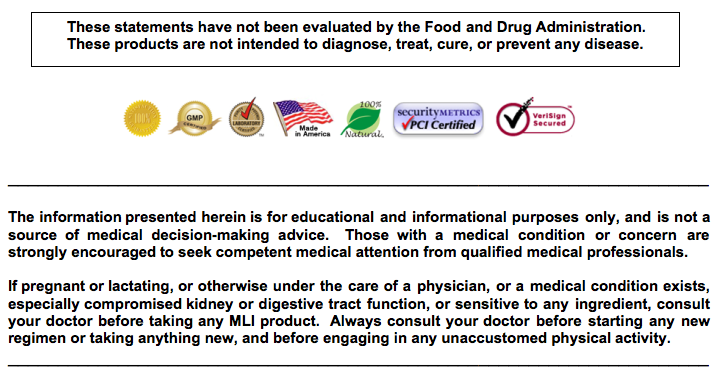Magnesium & Vitamin C Strongly Supports Cardiovascular Health & Function
Magnesium is the most heart-healthy nutrient there is. Magnesium supports the healthy function of the endothelial cells that line the arteries and heart. Vitamin C is the most vascular-healthy nutrient there is. Vitamin C supports the structural integrity and function of the vascular system. When inadequate consumption of these two vitally important essential nutrients habitually occurs it sets the stage for unbalanced calcium metabolism in a weakened arterial system, which when chronic triggers a cascading sequence of endothelial cell dysfunction, damage, inflammation, and dystrophic calcification. Unbalanced calcium metabolism (the result of habitually inadequate magnesium intake) in a weakened arterial system of long duration (the result of habitually inadequate vitamin C intake) is the fundamental underlying cause.
The essential mineral magnesium (Mg) is well-known as the most heart-healthy nutrient there is, with it being the only nutrient that can balance calcium metabolism (by virtue of it being a natural calcium channel blocker), as well as having the ability to naturally relax the muscle structure of the arteries and heart – thus supporting their normal function.
The vital nutrient vitamin C supports the normal function of the vascular system in at least two ways, by supporting the structural integrity of the blood vessels, and by supporting the immune system to help fight the inflammation associated with arterial damage (now believed to be caused by unbalanced calcium metabolism affecting the endothelial cells that line the arteries). Researchers at the University of California, Berkeley (Dr. Gladys Block, Professor Emeritus of Epidemiology and Public Health Nutrition, and her associates) concluded from their placebo-controlled studies that 1,000 mg per day of vitamin C demonstrated: “For participants with elevated C-reactive protein (defined as 1 milligram per liter or higher), vitamin C lowered CRP by 0.25 milligrams per liter compared to the placebo, a reduction similar to that associated with statin drug treatment.” (Reference: “Vitamin C supplementation lowers C-reactive protein levels,” Dayna Dye, Editor, Life Extension Update, November 14, 2008; and the January 1, 2009 issue of Free Radical Biology and Medicine.)
It is well-known that magnesium, as a natural calcium channel blocker, controls and regulates how much calcium enters each cell. Over time, chronic excess and unbalanced calcium most affects – and damages – the endothelial cells that line the interior of the arteries, where it comes into direct contact with these cells via the bloodstream. This causes endothelial cell dysfunction and eventual damage, which sparks an inflammation response that cascades into dystrophic calcification and buildup. Setting the stage for this is an inadequate intake of vitamin C of long duration causing a “sub-scurvy” condition that weakens the blood vessels. Suboptimal vitamin C intake causes “sub-scurvy.” (Reference: Linus Pauling Institute, et al.)
The underlying cause of dystrophic calcification that most affects the cardiovascular systyem is now believed to be unbalanced calcium metabolism in a weakened arterial system of long duration. The essential mineral magnesium is the only thing that can balance calcium metabolism, while it is vitamin C that provides the structural integrity of the arteries and helps support the immune system.
Theoretically, if a person consumed a perfect diet, the food they ate was grown in nutrient-rich soil without toxic pesticides, exercised every day, managed stress, wasn’t overweight, got adequate sleep each night, didn’t smoke or ever take drugs (including prescription drugs), lived in a pollution-free environment, was never exposed to toxic chemicals, their body (and their cells) didn’t deteriorate and get weaker as they aged, all their organs and systems functioned normally, and they did not have a family history of cardiovascular problems – then they probably wouldn’t need to take nutritional supplements. However, given the epidemic proportions of cardiovascular problems and the marked prevalence of their risk factors, it appears there are extremely few who wouldn’t benefit from taking a little extra magnesium and vitamin C each day.
Potentiated Magnesium (pMg) is an advanced form of the essential mineral magnesium (Mg) and vital vitamin C, featuring Maxcelint Uptake for enhanced intestinal absorption and optimum cellular utilization (with 100% uptake), and is the same form used in the pMg worldwide patents (encompassing the U.S., Canada, Japan, China, France, Germany, and the United Kingdom). Potentiated Magnesium supports and helps maintain the balance, stability, structural integrity and normal function of the cardiovascular system, cellular function, energy production, muscle function, respiratory function, and balances calcium metabolism. pMg is magnesium and vitamin C at their full potential.
(See “Unbalanced Calcium Metabolism,” “The Role of Calcium,” “Potentiated Magnesium,” “How pMg Works,” ”Magnesium,” and “Vitamin C” for more information.)


